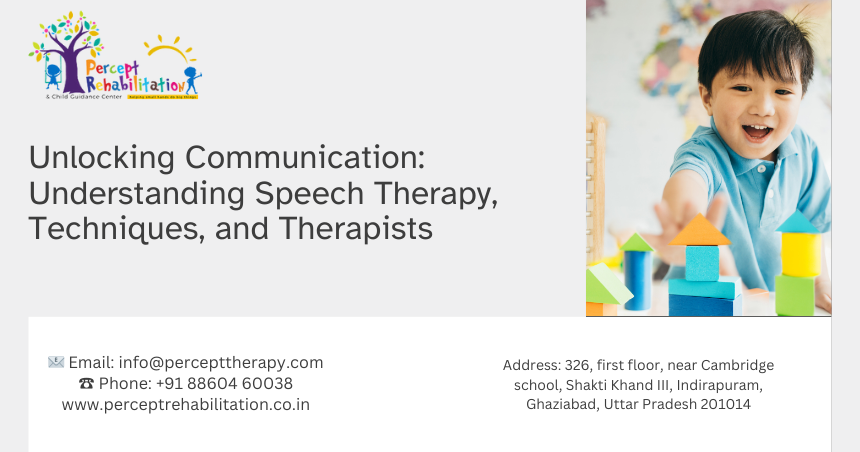Effective communication is the foundation for connection, learning, and social interaction. However, speech and language disorders can create significant challenges in a person’s ability to communicate effectively. This is where speech-language pathologists (SLPs), also known as speech therapists, come in. Understanding Speech therapy which is a specialized healthcare profession that helps individuals of all ages overcome these challenges and unlock their full communication potential.
What is Speech Therapy?
Speech therapy encompasses a wide range of services designed to assess and treat a variety of speech and language disorders. These disorders can affect a person’s ability to:
- Articulate sounds clearly (phonological disorders): This may involve difficulty producing certain sounds or forming words correctly.
- Use language effectively (expressive and receptive language disorders): Expressive language refers to the ability to share thoughts and ideas, while receptive language involves understanding spoken language.
- Fluency (stuttering): Speech therapy can help individuals manage stuttering and improve their overall fluency.
- Use their voice effectively (voice disorders): This may involve addressing issues like hoarseness, vocal strain, or pitch problems.
- Communicate after a stroke or brain injury (aphasia): Aphasia can significantly impact a person’s ability to speak, understand language, read, and write. Speech therapy can help individuals with aphasia relearn or develop new communication strategies.
What Happens During a Speech-Language Assessment?
The first step in speech therapy is a comprehensive speech-language assessment. During this assessment, the SLP will gather information about the individual’s communication skills, medical history, and any developmental concerns. They may use standardized tests, observations, and informal conversations to evaluate areas of strength and weakness.
Speech Therapy Techniques
Based on the individual’s needs, the SLP will develop a personalized treatment plan that may incorporate various speech therapy techniques. Here are some common techniques used in speech therapy:
- Articulation therapy: Exercises and activities designed to improve the production of specific sounds and word formation.
- Language intervention: Activities to target vocabulary development, grammar skills, comprehension strategies, and social communication skills.
- Fluency techniques: Strategies to manage stuttering, such as slow and purposeful speech, relaxation techniques, and visualization exercises.
- Voice therapy: Exercises to improve vocal quality, pitch, and volume control.
- Augmentative and alternative communication (AAC): This may involve using picture boards, electronic devices, or other tools to assist individuals with complex communication needs.
Who Can Benefit from Speech Therapy?
Speech therapy can benefit people of all ages, including:
- Children: Speech therapy can help children with developmental delays, articulation disorders, stuttering, or language processing difficulties.
- Adults: Adults who have experienced a stroke, brain injury, or have a voice disorder can benefit from speech therapy.
- Adults with hearing loss: SLPs can help individuals with hearing loss develop communication strategies and improve their speech clarity.
The Role of the Speech-Language Pathologist
Speech-language pathologists (SLPs) are highly trained professionals who hold a master’s degree and have a state license. They are dedicated to helping individuals overcome communication challenges and improve their quality of life. SLPs work collaboratively with patients, families, and other healthcare professionals to ensure a comprehensive approach to communication intervention.
Conclusion
Speech therapy is a powerful tool that can unlock communication potential and empower individuals to connect with the world around them. If you or someone you know is struggling with speech or language difficulties, consider reaching out to Percept Rehabilitation Center. Our team of experienced speech-language pathologists can assess your needs, develop a personalized treatment plan, and help you achieve your communication goals. Contact us today at 08860460038 or info@percepttherapy.com to learn more. Locate us on Google Map.


